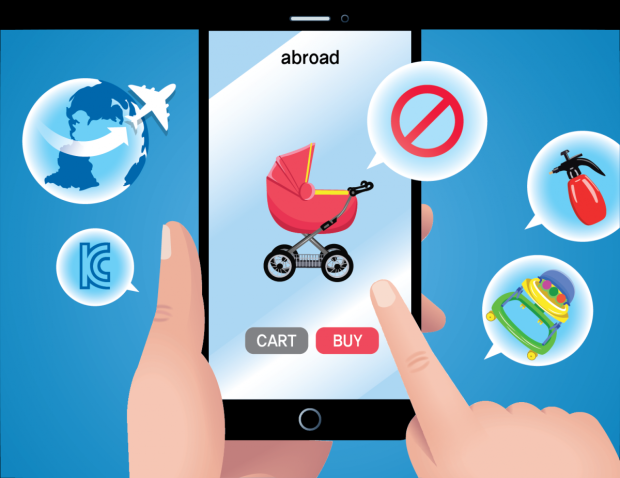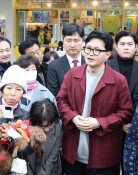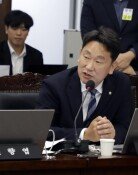Ban on 80 overseas products without KC mark starts next month
Ban on 80 overseas products without KC mark starts next month
Posted May. 17, 2024 08:03,
Updated May. 17, 2024 08:03

Starting next month, strollers and electric water-heated mattress pads without the KC (Korea Certification) mark will be banned from direct overseas purchases. This change has implications for consumer finances. Currently, products purchased directly from overseas online shopping malls that cost $150 or less are exempt from customs duties and VAT, but the government is considering lowering the threshold. Lowering the exemption threshold will increase consumers' taxes, a factor consumers need to be aware of.
On Thursday, the government met with ministers about pending national issues, chaired by Prime Minister Han Duck-soo, to announce a plan to strengthen consumer safety and enhance corporate competitiveness in response to the surge in overseas direct purchases. “Products directly related to the safety and health of the people are being brought into the country without safety compliance,” a government official explained. The Korea Customs Service recently purchased 404 jewelry items sold on AliExpress and Temu, analyzed their ingredients, and found that 24 percent of the products contained carcinogens exceeding safety standards. Products that have undergone formal import procedures, rather than direct purchases from overseas, have received safety certifications such as the KC mark and are distributed in Korea.
The government has decided to ban 34 products used by children under 13, such as strollers and toys, from overseas direct sales unless they are KC-certified. Virtually all children's products are included in the ban, ensuring they are checked for harmful substances and safety. Additionally, 34 electrical and household products, including electric water-heated mattress pads and electric chargers that can cause accidents, are also banned unless they are KC-certified. Twelve household chemical products, such as disinfectants, preservatives, and sterilizers for humidifiers, are prohibited from being sold directly from overseas shopping malls unless they are declared and certified. The government plans to revise the relevant law within this year and filter out products without the KC mark during customs clearance.
Cosmetics and hygiene products that come into direct contact with the skin are also tested for the presence of 1,050 banned ingredients. If they are found to be harmful, they cannot be brought into the country. Jewelry and household chemical products, such as air fresheners, which often enter Korea, are also monitored and inspected, and products with harmful substances exceeding the threshold are blocked from entering the country.
The government is considering adjusting the foreign direct purchase duty-free threshold to address concerns of unfair competition. Currently, individuals can bring overseas goods purchased online for their own use into Korea without paying duties if the value is $150 or less ($200 for goods from the U.S.). However, there have been complaints from the domestic industry about the tax exemption system for small items purchased directly from overseas. To level the playing field, the government is reviewing this policy, ensuring people are well informed about potential changes.
세종=이호 기자 number2@donga.com







